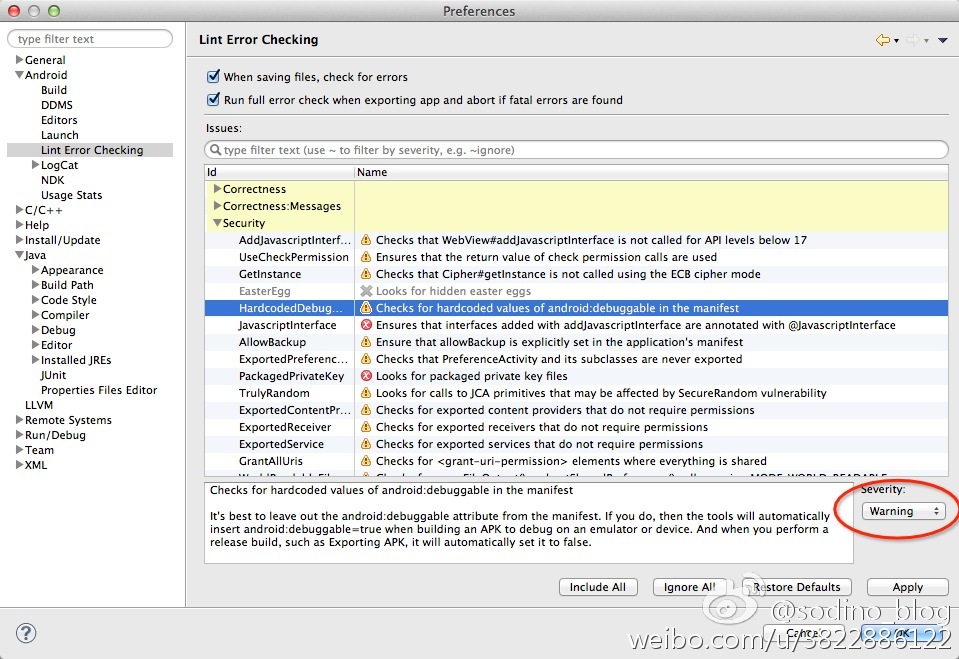‘Avoid hardcoding the debug mode’的解决
#问题
SDK Tools Revision 8以后,如果在AndroidManifest.xml中直接设置
1 | android:debuggable="true" |
则Eclipse会报错如下:
Avoid hardcoding the debug mode; leaving it out allows debug and release builds to automatically assign one
Issue: Checks for hardcoded values of android:debuggable in the manifest
Id: HardcodedDebugMode
It’s best to leave out the android:debuggable attribute from the manifest. If you do, then the tools will automatically insert android:debuggable=true when building an APK to debug on an emulator or device. And when you perform a release build, such as Exporting APK, it will automatically set it to false.
If on the other hand you specify a specific value in the manifest file, then the tools will always use it. This can lead to accidentally publishing your app with debug information.
#解决:
Eclipse -> Preferences -> Android -> Lint Error Checking -> Issue -> Security -> HardCodeDebugMode -> Severity: -> Warning即可。如下图。
相关链接:http://developer.android.com/tools/sdk/tools-notes.html# SDK Tools Revision 8
Support for a true debug build. Developers no longer need to add the android:debuggable attribute to the